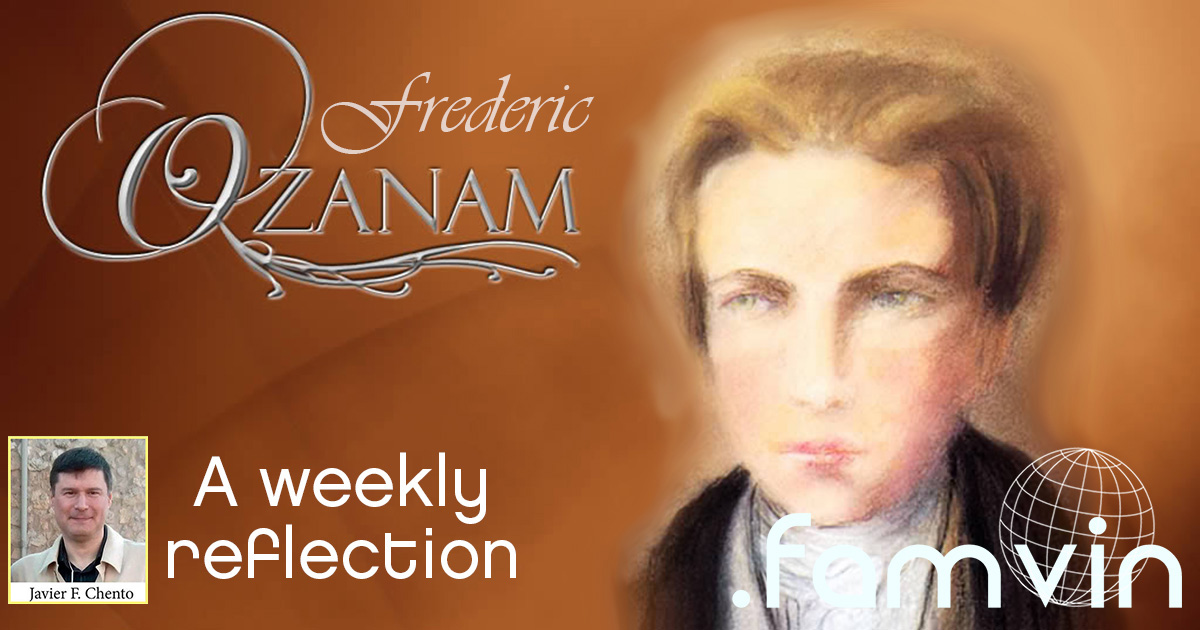In these foul cellars and garrets, sometimes next door to sloth and vice we have often come upon the loveliest domestic virtues, on a refinement and intelligence that one does not always meet with under gilded ceilings; a poor cooper, of past seventy years of age, tiring his infirm arms to get bread for the child of a son who had died in the flower of his age; a deaf and dumb boy of twelve, whose education has been carried on by the self-devotion of his poor relatives with such success that he begins to read, and knows God and prays. We shall never forget one poor room, of irreproachable cleanliness, where a mother, clothed in the threadbare costume of her native place, Auvergne, was working away with her four daughters, modest young girls, who only raised their eves from their work to answer the stranger’s questions. The father was nothing but a hodman, working by the day at a mason’s; but the faith which these honest people had brought with them from their native mountains illuminated their lives, just as the sunbeam that stole in through their tiny window lighted up the pious pictures pasted on the walls.

Frederic Ozanam, article «Aux gens de bien» [To good people], in L’Ère Nouvelle, nº 151, September 15, 1848.
Reflection:
- We continue this week reflecting with another piece of a complete article by Frederic Ozanam, entitled “To good people,” which he published in the newspaper L’Ere Nouvelle in September 1848. Let us recall that, just a couple of months before this article was published, France had lived the so-called “June Days” in which, before the unpopular measures taken by the newly elected Conservative government, workers took to the streets from June 23 to 26,1848, being hard and quickly repressed by the authority. These were the first months of the so-called “Second French Republic”, which would last little, barely four years.
- Frederick continues relating in today’s text the miserable conditions of the poor workers, from his own personal experience of close association with them in the Latin Quarter of Paris, where the Society of St. Vincent de Paul began his work in 1833 with the help of a Daughter of Charity, Sr. Rosalie Rendu.
- The very serious conditions that the workers suffered, incapable of getting out of poverty — even working — were for Frederic a situation contrary to the dignity of the human person. Behind every injustice we always find the face of people who suffer precariousness and abandonment. Then, most of them were immigrants, coming from rural areas of France, in search of a better life, displaced with their families to look for work in the factories of the capital. Many of them became part of the mass of the poor in Paris. The vast majority, as Frederic draws in his writing, were good, honest, hardworking, religious people.
- We can make a clear parallel with our current reality: the movements of people fleeing from areas devastated by war and hunger, to richer areas, are part of our present scenario: millions of displaced people seeking only a decent life, that meet, in the great majority of cases, with the indifference — if not open hostility — of those who, in the richer countries, do not wish to be disturbed in their own self-indulgence.
- The Vincentian Family reflects from this year 2017 on “welcoming the stranger”. For four centuries, from St. Vincent de Paul, we have, imprinted in our hearts, minds and hands, the conviction that the poor — “our masters and lords” — and our faith require in us a loving care, valuing the poor person in her/his own goodness.
- It is our duty, as followers of Vincent, not only to alleviate their needs, but also to give light to their situation so that the whole society knows their reality, as did Frederic in his.
Questions for dialogue:
- Are we Vincentians “friendly people” to the stranger?
- What are we doing to try to improve their situation?
- What are we doing to change social structures, to advocate for the dignity of the impoverished?
- What else could we do?
Javier F. Chento
![]() @javierchento
@javierchento
![]() JavierChento
JavierChento








0 Comments